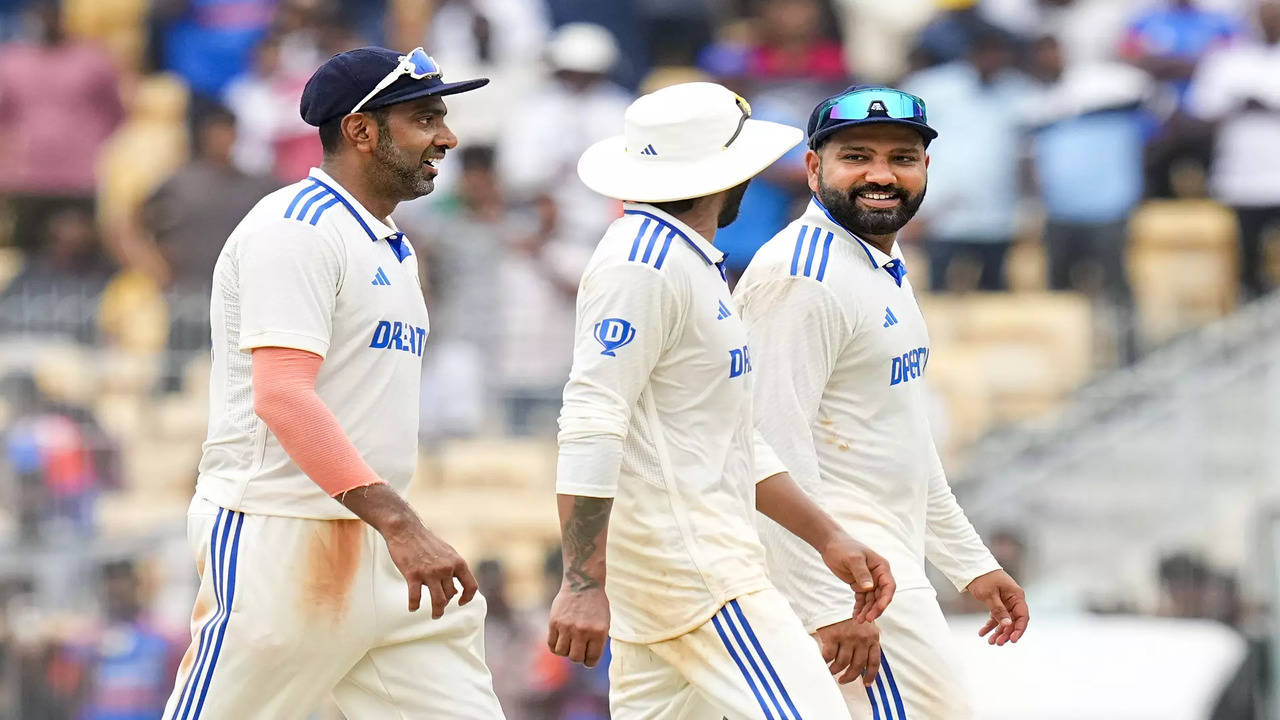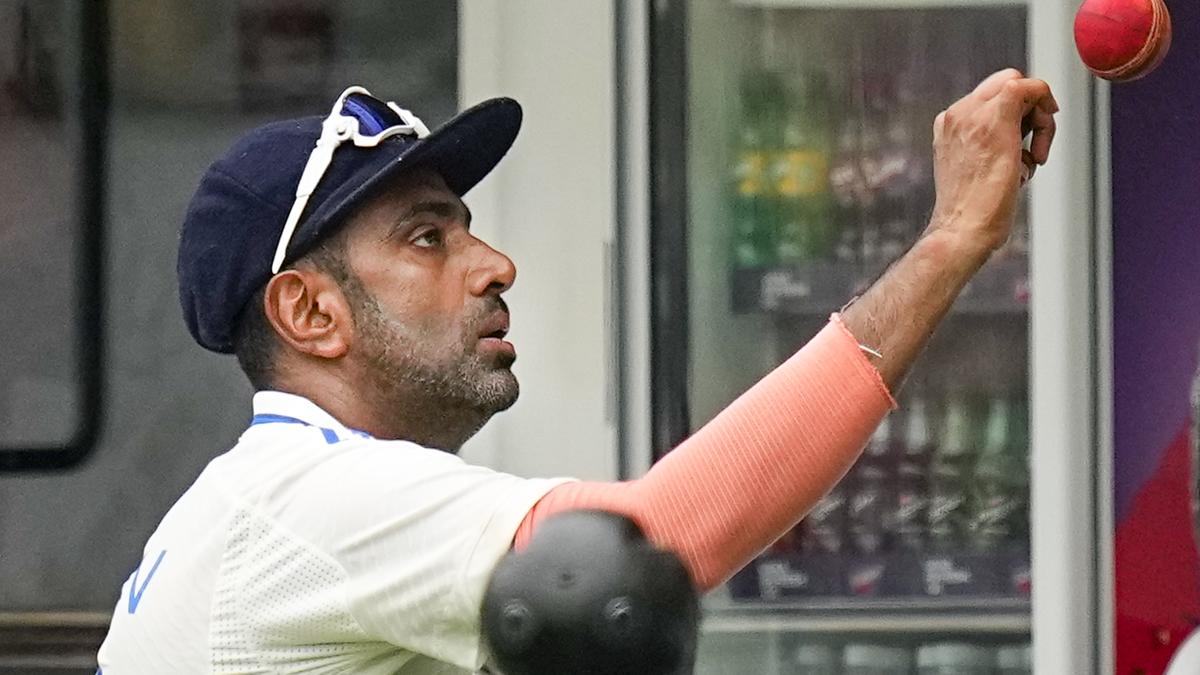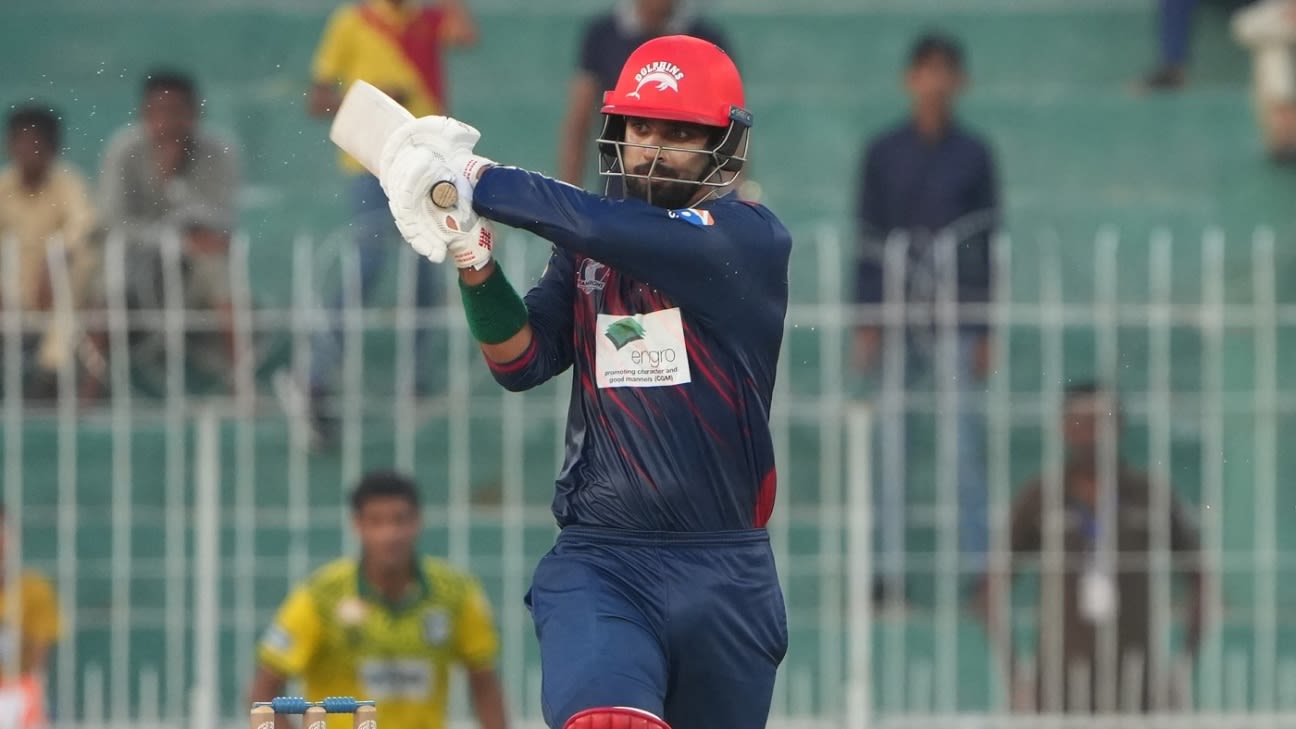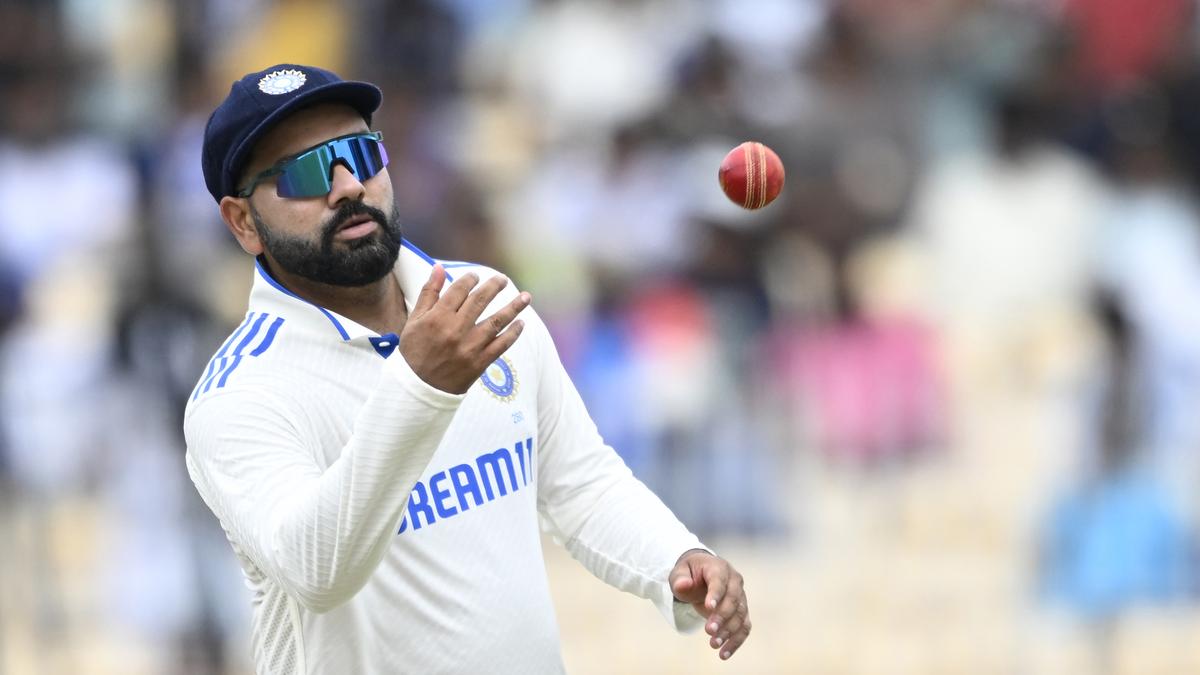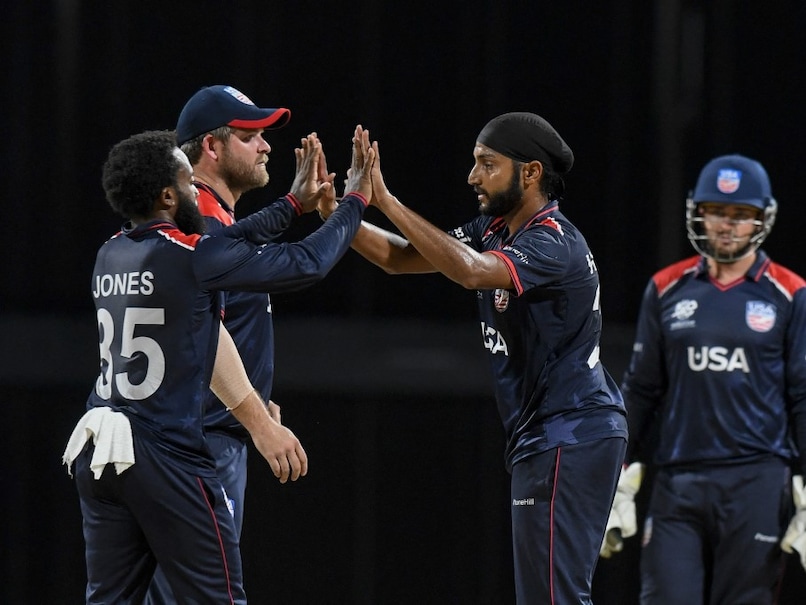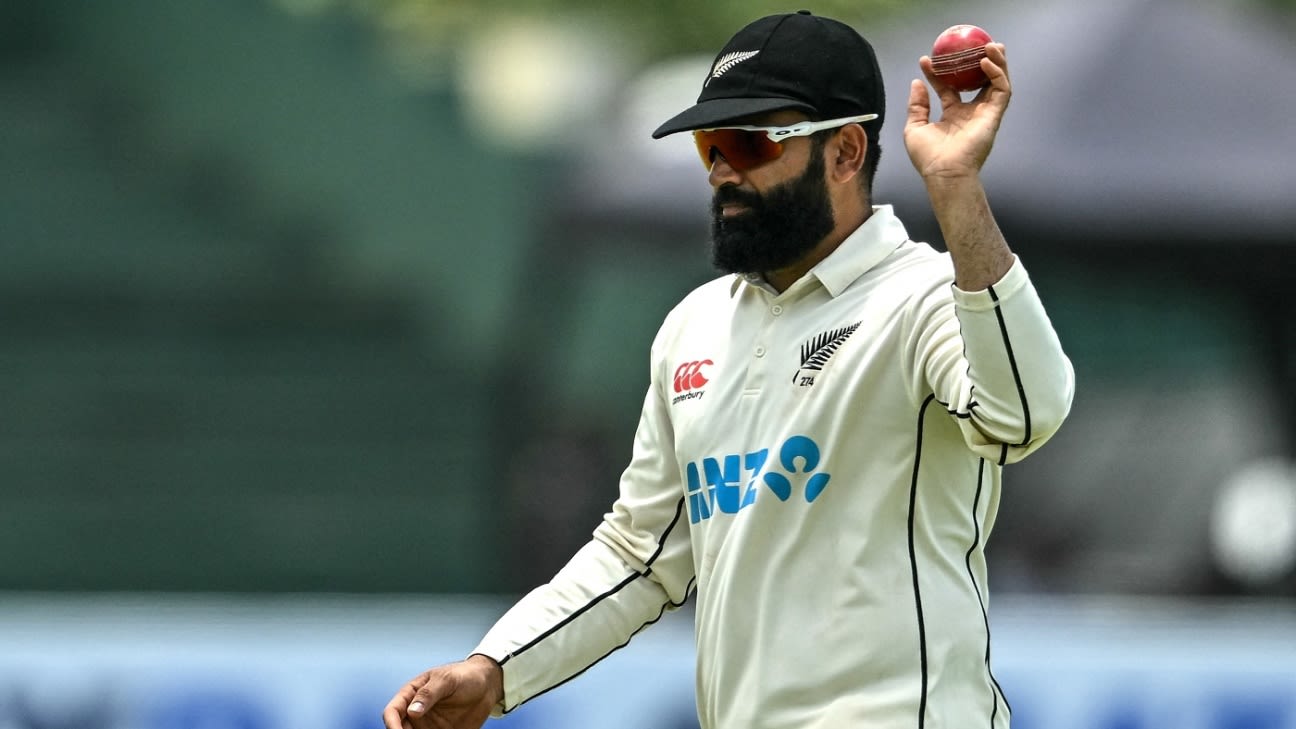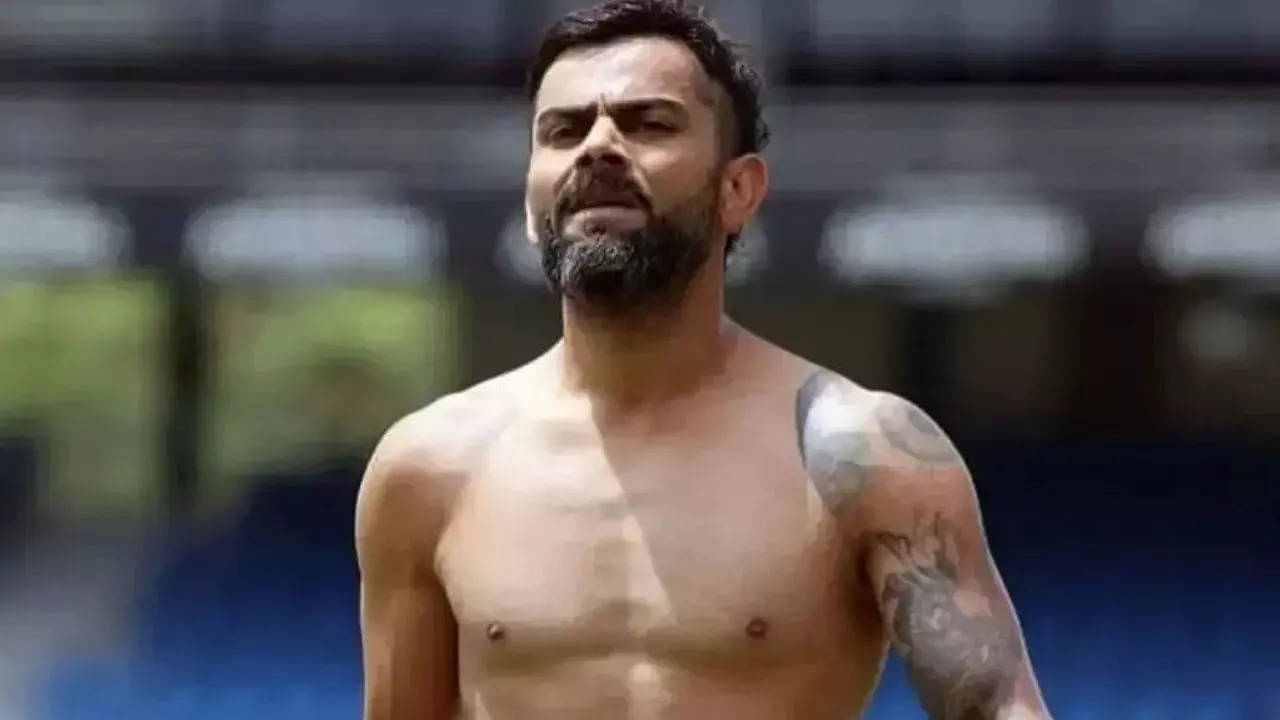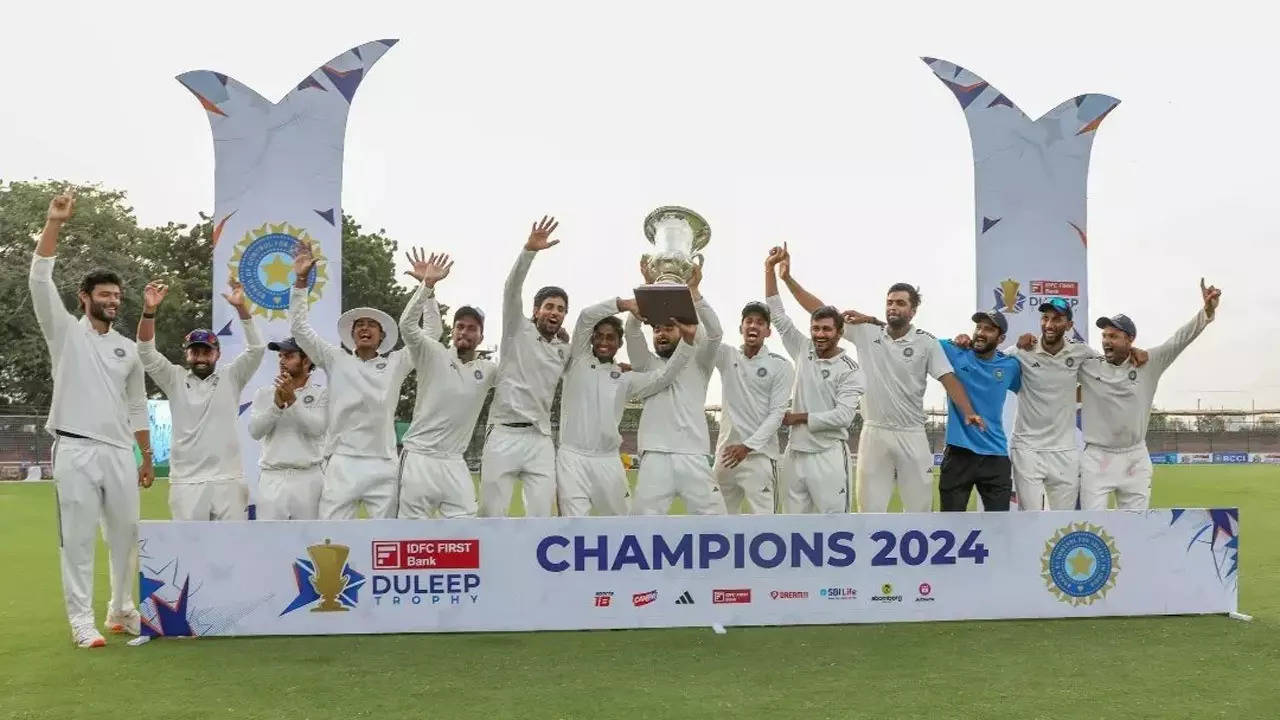The World Cup was slipping away from India, a second heartbreak in seven months seemed imminent. Axar Patel had started the 15th over of South Africa’s run-chase in the T20 World Cup final in Bridgetown with the Proteas needing 54 for victory off 36 deliveries. A savage onslaught from Heinrich Klaasen fetched 24 runs off the left-arm spinner’s final over of the competition. South Africa’s equation was down to 30 off 30, with six wickets in hand.
Axar had had a superb World Cup in all three departments. Why, even in the final, it was his 31-ball 47, when promoted to No. 5, which ensured that India scored at a healthy clip despite Virat Kohli going 35 deliveries without a boundary at one stage. Even with the ball, his first three overs had yielded a more than acceptable 25, well below the required run rate at the start of the South African innings. Yet, if the Gujarat all-rounder felt as if he’d rather the earth opened and swallowed him whole, there was good reason to do so.
A downcast Axar received his cap from the umpire, looking dazed, when his captain strode up to him and whispered words of encouragement. Rohit Sharma told Axar he had no reason to feel disappointed because even good deliveries had been sent beyond the fence by Klaasen. He wasn’t saying it for effect or to soften the blow; Rohit is that kind of captain – empathetic, understanding, a solid figure of support in times of crises, but also unafraid to crack the whip if he perceives even the slightest slackening of effort.
To take time off at a critical stage of the contest, with the game almost slipping away, when he had other things on his mind spoke to Rohit’s unique leadership style. Five IPL titles as captain haven’t transpired by chance or accident; Rohit is a fabulous man-manager, one of the most significant traits a captain must possess, apart from being an astute tactician and a great reader of the game.
Rohit’s mind was ticking after the Axar over that could have been the difference between ecstasy and agony. To find the wherewithal at that point to seek out the bowler and lift his spirits was a master-stroke, a typical Rohit gesture which is one of the reasons he is so adored by his teammates. Aware that no purpose would be served by dwelling on the six Axar deliveries that had seemingly altered the course of the final, Rohit chose to look forwards. He must have feared a reprisal of the 50-over World Cup final in Ahmedabad when India’s perfect campaign came to a juddering halt against the Australian juggernaut, but he could ill afford to make his apprehensions apparent. Especially when in a spot, the team looks to the leader for inspiration and comfort.
By maintaining a confident exterior, no matter the cesspool of emotions that threatened to overwhelm him, Rohit was sending out a clear, voluble message – ‘We are still in it, lads’. He then marshalled his troops with the felicity and situational awareness of a celebrated general, tweaking the field here, making a change there. He brought Jasprit Bumrah on for the 16th over, maybe an over earlier than he would have liked, maybe not, for control. His undisputed spearhead responded by conceding only four.
Then, after Hardik Pandya lucked it out by forcing Klaasen to feather a slower, wide ball outside off to Rishabh Pant, Rohit persisted with Bumrah for over No. 18 when normally he keeps him back for No. 19. Bumrah plucked out Marco Jansen’s leg pole, conceding only two runs in that over. The balance of power had shifted inexorably during those two Bumrah overs, and India tightened the screws to complete a remarkable seven-win victory when defeat had appeared on the cards 30 minutes previously.
After the last ball of the final had been delivered by Hardik, Rohit flung himself to the ground, prone, at cover and slapped the turf vehemently and repeatedly with his right palm. It was an outburst of naked emotion from someone who wears his emotion openly, but seldom loses control. In that one iconic gesture lay relief and delight, redemption and vindication. The T20 World Cup triumph wouldn’t quite make up for defeat in the final of the longer white-ball World Cup, but considering the circumstances under which it came, Rohit would take it. Gladly. With feeling.
Perhaps, in some quarters, India winning a World Cup under Rohit was taken for granted merely because he had piloted Mumbai Indians to five IPL titles. If only life were that simple. Perhaps Rohit felt the weight of expectations, perhaps he was so gutted by defeat to Australia that he chose to extend his T20I career merely in pursuit of the pot of gold. By steering the team to the T20 crown against all odds, Rohit has stormed into rarefied territory, joining Kapil Dev and Mahendra Singh Dhoni as the only Indian World Cup-winning captains.
‘It couldn’t have happened to a nicer guy’ has been the overriding theme over the last three or so months. Nice guys, it seems, can and do finish first. Such has been the luminescence of his batting that Rohit’s leadership skills have often flown under the radar. Maybe in a way, he is an accidental Test captain because two and a half years before he embraced that role, he wasn’t even certain of his place in the Test XI, despite by then having spent six wildly fluctuating years as a Test cricketer.
His elevation to the top of the batting order in the five-day game has come with unexpectedly spectacular consequences because, like in the white-ball formats, it’s as an opener that he has found his calling, entirely because of which the captaincy became his once Kohli decided to abdicate the throne. Rohit has overseen the first little period of transition in Indian Test cricket in a little while. It’s under him and head coach Rahul Dravid that Yashasvi Jaiswal and Shubman Gill positively flourished. He oversaw the debuts of a slew of untested but talented youngsters during the Test series against England, when his tactical skills and inner steel were severely tested with injuries crippling India’s batting, and he ensured those youngsters were presented with the right atmosphere in which to blossom and perform.
His overwhelming desire to walk the talk and take it upon himself to be the first executor of the policy of unfettered batting aggression might have led to a decline in the tall edifices he used to erect with unerring regularity in both T20Is and ODIs, but the impact of his boisterous ball-bashing in the PowerPlay overs has had a cascading effect on his colleagues.
It’s impossible not to be inspired by the selflessness of the leader when the said leader has a monumental three ODI double-tons and a record-equalling five T20I hundreds, but is now more fixated on a 25-ball 50 than a 60-ball century. Rohit belongs to the school that believes that you shouldn’t demand of others what you don’t do yourself. By leading from the front in espousing the theory of boldness and attack, he is now commanding the loyalty and admiration of his troops. Without saying it in as many words, Rohit’s resounding message is ‘Do as I say, and as I do’, because what he is saying and what he is doing are perfectly in sync with each other.
Having realised a long-cherished ambition of helping India break their ICC trophy drought, Rohit has now walked away from the T20I game with little left to achieve. There is unfinished business yet in the other two versions; 2025 will witness the Champions Trophy, which India last won in 2013, as well as the third final of the World Test Championship. India have lost both preceding finals, to New Zealand (2021) and Australia (2023) respectively, a tribute to their consistency that they made both title rounds but a blow to their ego and dream that they couldn’t navigate the final step successfully. Within a few months next year, Rohit will have a grand chance to take India to the unprecedented heights they touched only under Dhoni, an exciting possibility that one is sure Rohit will approach with tempered optimism rather than with the fear of not making it happen.
One of the boys Even though he is the undisputed leader – even a cursory glance will confirm that the eyes of all his nine outfielders are firmly trained on him between deliveries because he doesn’t suffer slackers gladly – Rohit has managed to remain one of the boys, sending his teammates into raptures with his pithy, often unprintable one-liners that carry not an iota of vindictiveness or malice. In a tense situation, he is the first with a joke, trying to lighten the mood not because he has to but because it comes naturally to him. He looks after the younger guys under him with the zest of a tigress protecting her cubs, though when it comes to reading the riot act, he has few equals. Rohit is a believer in tough love but is grudge-free and honest in his conversations and decision-making, qualities that separate the great leaders from the good ones. Indian cricket is fortunate that Rohit is the latest in a long line of terrific captains and leaders, but one of a kind when it comes to a lot of things – including tactical astuteness and terrific wit.

